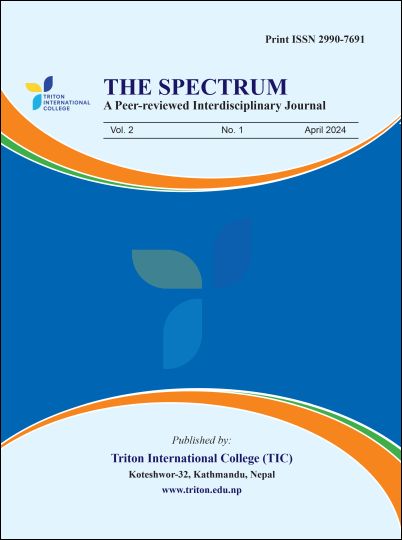A Study on the Determinants of Employee Turnover in the Academic Institutions of Kathmandu Valley
DOI:
https://doi.org/10.3126/spectrum.v2i1.64771Keywords:
Employee Turnover, Herzberg Two Factor Theory, Job SatisfactionAbstract
The purpose of the study is to identify factors influencing employee turnover intention in the academic sector in Kathmandu valley. Explanatory research design is used as the main research paradigm to discover reality. It has used a purposive sampling technique where a total of 404 were interviewed with a structural questionnaire; where data collection is done by using the KOBO Toolbox. The data was evaluated by using both descriptive and inferential statistics. Structural Equation Modeling was used to analyze the relationships between variables using Smart PLS software. The finding reveals that positive supervisor relationships, favorable work conditions, and recognition significantly impact job satisfaction. Job satisfaction, in turn, plays a crucial role in shaping turnover intentions. Identified challenges in salary, recognition, work-life balance, and career growth call for solutions emphasizing employee well-being, recognition, growth opportunities, flexible hours, open communication, and monotony relief.
Downloads
Downloads
Published
How to Cite
Issue
Section
License
Copyright (c) 2024 The Author(s)

This work is licensed under a Creative Commons Attribution-NonCommercial 4.0 International License.
This license allows reusers to distribute, remix, adapt, and build upon the material in any medium or format for non-commercial purposes only, and only so long as attribution is given to the creator.




